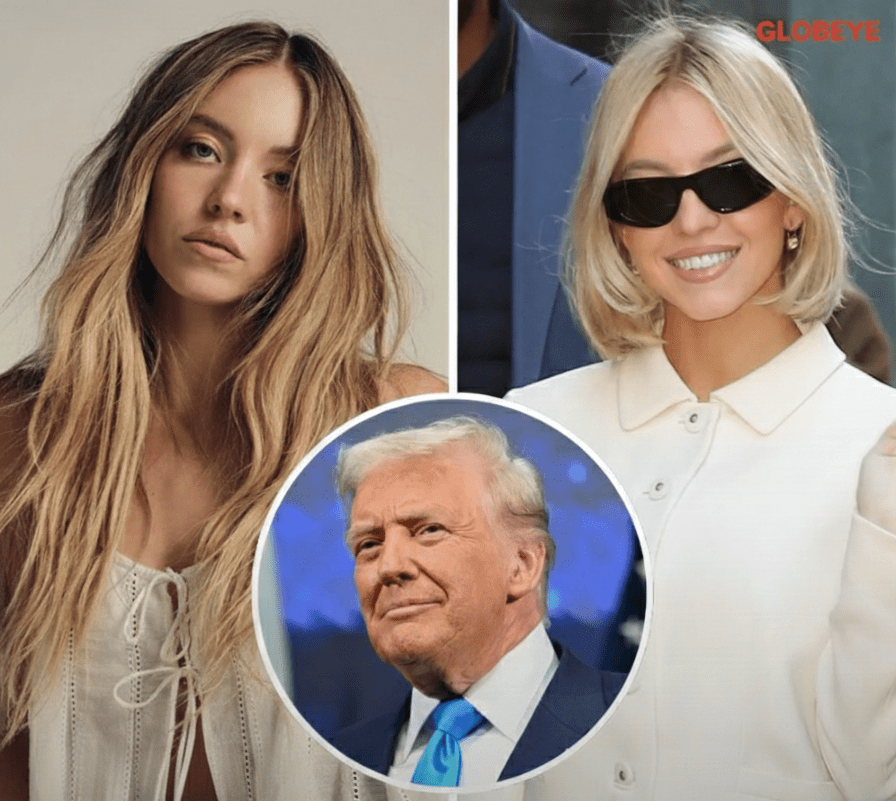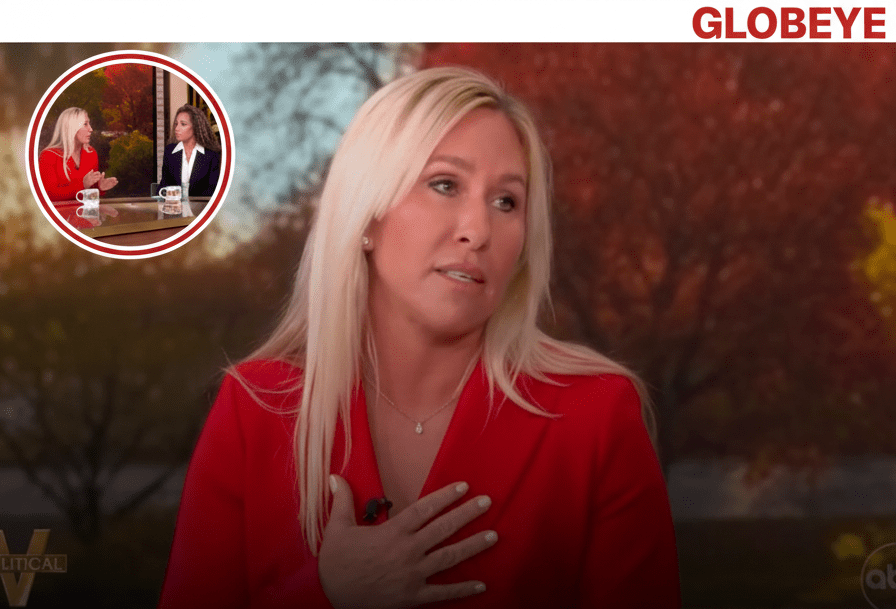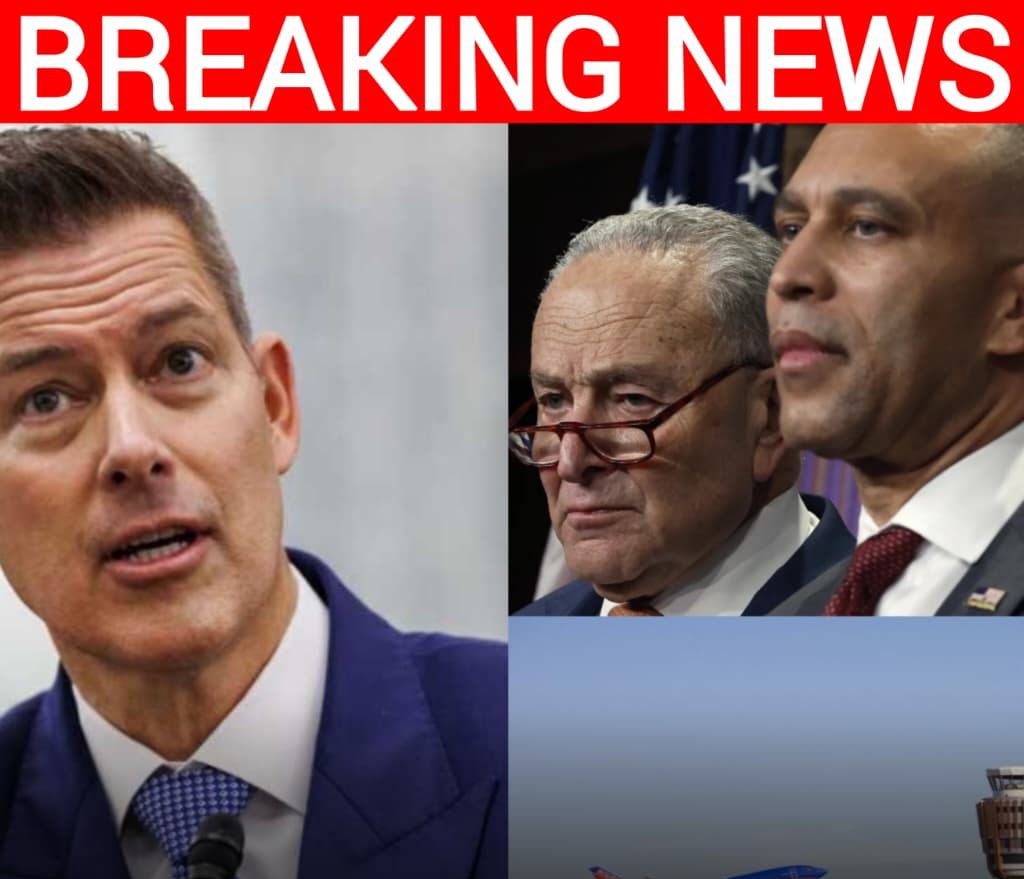How Sydney Sweeney Broke Her Silence on the American Eagle Jeans Campaign That Sparked a National Debate — and What It Means for Her Career
When the dust settled on the summer advertising blitz starring Sydney Sweeney, she found herself at the center of something far larger than a jeans campaign. The 28-year-old actress, best known for her work on Euphoria and The White Lotus, had signed on to front a new campaign from American Eagle titled “Sydney Sweeney Has Great Jeans.” What was supposed to be a playful, fashion-forward celebration of denim turned into a cultural flashpoint that spiraled into political commentary, social debate, and personal scrutiny.
The campaign launched in late July and featured Sweeney in multiple shots wearing blue denim while delivering a clever voice-over: “Genes are passed down from parents to offspring, often determining traits like hair color, personality, and even eye color. My jeans are blue.” It was meant to be cheeky — a simple pun — but the internet had other plans.

Within hours of its release, screenshots and clips from the campaign flooded social media, and a wave of criticism followed. The wordplay between “genes” and “jeans” was deemed tone-deaf by some online commentators, who claimed the ad unintentionally evoked themes of eugenics, idealized beauty standards, and exclusivity. To critics, the image of a blonde, blue-eyed actress talking about “great genes” carried uncomfortable undertones, especially in a time when conversations around privilege, race, and representation dominate cultural discourse.

What might have been brushed off a decade ago as an innocent pun was suddenly dissected and debated across platforms. Historians, marketers, and cultural commentators weighed in, some calling it a case study in how brands can misread the moment. Others argued that the outrage was overblown, suggesting that people were simply looking for controversy where there was none.
Polls and online metrics showed the divide clearly. A YouGov survey conducted in early August found that roughly 40 percent of respondents thought the ad was clever and funny, while about 12 percent found it offensive. The rest said they were either indifferent or unaware of the campaign entirely. Yet, those numbers didn’t tell the full story — the controversy had already taken on a life of its own.

As the debate intensified, American Eagle attempted to clarify its message. The company released a statement saying the campaign was always meant to be lighthearted, focused on individuality and confidence. “Sydney Sweeney Has Great Jeans is about denim — and how everyone wears theirs differently,” the statement read. “Great jeans look good on everyone.” But that reassurance did little to calm the online storm.
Then came an unexpected twist — Donald Trump weighed in. On Truth Social, the former president posted a message praising Sweeney’s ad, calling it “the hottest campaign out there” and adding, “Go get ’em Sydney!” The endorsement went viral overnight, instantly reframing the story. Within twenty-four hours, American Eagle’s stock surged to its highest level in years, gaining more than 20 percent on Wall Street.

For supporters of the brand, Trump’s comment was a free marketing boost. For critics, it confirmed their suspicions that the campaign’s tone had unintentionally appealed to a conservative or nationalist aesthetic. Suddenly, a jeans ad had become part of the broader cultural and political battlefield, with hashtags linking fashion marketing to ideology.
Despite the online frenzy, real-world data painted a mixed picture. Retail analysts reported that in the two weeks following the controversy, foot traffic to American Eagle stores dipped by nearly 10 percent year-over-year. Online engagement soared, but physical sales in certain regions fell — suggesting that while the ad drove conversation, it may not have driven customers into stores.

Through all of this, Sydney Sweeney remained quiet. For weeks, she made no public comment about the situation. She continued attending film premieres, promoting her projects, and sharing glimpses of her career on Instagram. Her silence became part of the narrative — was she avoiding accountability, or simply refusing to feed the chaos?
In early November, the actress finally addressed the backlash. In a new interview with GQ magazine, she spoke candidly but calmly about the ordeal. “I know who I am. I know what I value. I know that I’m a kind person,” she said. It was a short statement, but it carried weight. She didn’t apologize — and she didn’t need to. Instead, she re-centered the focus on her character, not the noise surrounding her.
For Sweeney, who has built her career on a blend of acting talent, commercial appeal, and authenticity, the controversy was more than just a PR hiccup. It was a test of how she would navigate fame in an era where every image and word can be politicized. As one industry insider noted, “This was never about jeans. It was about how celebrity and politics now collide in real time.”

Her decision to stay silent until the noise subsided was, in hindsight, strategic. The outrage cycle moved quickly — as most viral moments do — and by the time she spoke, audiences were ready to hear from her again without the same intensity of scrutiny. Her statement wasn’t defensive, nor was it defiant. It was human.
Adding another layer to the public’s interest, records revealed earlier this year that Sweeney is registered as a Republican voter in Florida. That fact, which circulated in the media during the height of the ad’s backlash, fueled speculation about her political leanings. It also made Trump’s unsolicited endorsement feel even more pointed, though Sweeney herself has never publicly commented on politics.
For American Eagle, the campaign will likely be studied for years as an example of viral marketing’s double-edged sword. On one hand, it achieved massive reach — billions of online impressions and a surge in brand mentions. On the other, it forced the company into the crossfire of a national conversation it never intended to start. Corporate spokespeople later described the experience as “a learning moment” about timing, tone, and the unpredictable nature of viral culture.
From a cultural perspective, the episode underscored how brand partnerships have become mirrors for broader social tension. It wasn’t just about Sweeney or denim — it was about the way celebrity campaigns can accidentally tap into deeper anxieties about identity, privilege, and representation.

Still, the actress’s career doesn’t seem to have taken a hit. Her upcoming projects — including the biopic Christy and a psychological thriller slated for release next spring — remain on track. Insiders say she continues to be in demand among both film directors and fashion brands. If anything, the controversy has amplified her visibility, proving that she can withstand public pressure and remain poised under fire.
Sweeney has spoken in the past about her financial realities, explaining in earlier interviews that acting alone doesn’t guarantee long-term security. “If I wanted to take a six-month break, I don’t have income to cover that,” she once said. “I take deals because I have to.” That comment now feels especially resonant — it highlights how, for young stars, endorsement work isn’t just about luxury or exposure; it’s often about survival in an industry that moves fast and demands constant relevance.

The American Eagle episode, for all its noise, may end up being a defining chapter in Sweeney’s journey — not as a scandal, but as a lesson in resilience. She handled it quietly, without dramatics or social-media wars, and re-emerged with her brand largely intact. For her fans, that restraint felt refreshing in an age of overreaction.
As for the brand, analysts are divided on whether the controversy ultimately helped or hurt. Some argue it brought unprecedented attention to a retailer long considered a relic of early-2000s mall culture. Others say the fleeting online buzz doesn’t justify the reputational risk. Yet, in a world where visibility often equals value, American Eagle may have found itself exactly where it wanted to be — relevant again.

For Sydney Sweeney, the takeaway seems simple. She doesn’t need to defend who she is or what she stands for. Her words to GQ summed it up best: “I know who I am.” It’s a statement of quiet confidence, one that cuts through the noise of outrage culture and political labels. She didn’t let an ad define her — and that, in today’s celebrity ecosystem, is its own kind of victory.



